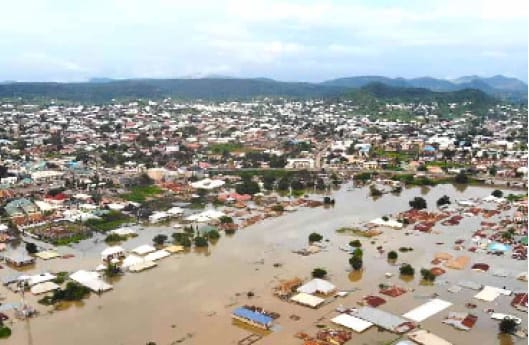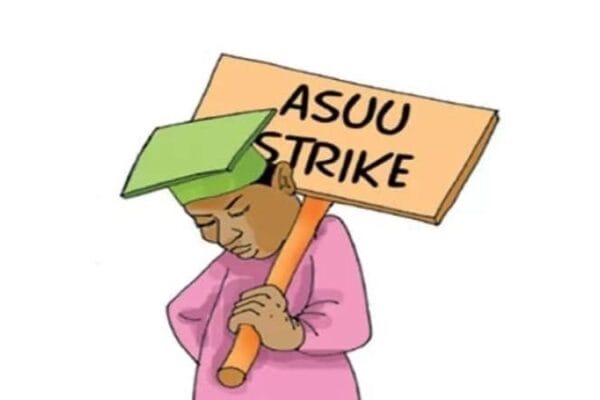DESPITE the free education policy of the Bauchi State government, a good number of children still do not accompany school. In fact, according to Bauchi State Annual School Census, ASC, data for 2019–2020, a total of 1,031,524 children are out of school in the State.
In Masori community of Alkaleri local government area of Bauchi State, which is a corridor-town to North-East states, out-of-school girls have taken advantage of the strategic location of the town to market food items to passengers and commuters who ply the town to various destinations.
Speaking with Arewa Voice, some of the girls (ages 6–8) wearing heavy makeup said they applied makeup on their faces to attract customers to patronise their goods. They argued that girls who wore makeup on their faces sold more goods faster than those who didn’t.
Eight year old Maimuna Aliyu, while hawking her boiled eggs, said she has never been to school because her parents never mentioned it to her. She lamented that even though she would like to get an education, it remained a mirage as she had a duty to contribute to the family purse.
“l like makeup a lot. If you look at my friends, you will see that there’s hardly anyone who isn’t wearing makeup. You know we are girls, and we need to look beautiful every time, particularly to customers who want to buy our goods. This idea of wearing makeup didn’t start with us, it’s been like this even before we were born. Those who we met in the business told us that it is easier to sell our items faster, and we have confirmed it to be true. As you can see, my tray is empty. I just sold my last eggs. I have never had my parents talk about school, and they have never attempted to enroll me in a school at any time. I would like to go to school, but I can’t ask my father because he might beat me. The work I do is to support my family in my own little way because my parents’ farm cannot feed us for the whole year.”
Although there have been interventions such as foundational literacy programmes for pupils and capacity building training of teachers by the government and UNICEF to encourage enrollment in schools, the number of out-of-school children in Bauchi State remains high. Moreover, the Chief Field Officer, UNICEF, Bauchi Field Office, Dr. Tushar Rane, worried by the number of out-of-school children in the state, stated that quality education, especially at the basic level, is integral to socioeconomic development. According to him: “Education is a fundamental right that empowers children to reach their full potential, but it is deeply concerning that, due to varying factors, a significant number of children in Bauchi State are unable to access this fundamental right, robbing them of their dreams and aspirations.” Meanwhile, parents in the Masori community have blamed poverty for their inability to send their children to school despite the free education policy of the Bauchi State government. Some mothers told Arewa Voice that they send their girls to hawk food items to alleviate their poverty. They lamented that poverty has rendered them incapable of sewing uniforms and paying the development levy for their children who want to attend school. Citing cultural reasons, the women said that their culture bars them as married women from hawking items, leaving them with no option but to send their children to help with providing finance for their family needs. Hajiya Lami Ibrahim, one of the housewives in the community, said that sending children to school is financially demanding on the family as their husbands are only peasant farmers whose income cannot fend for their families.
“We are basically farmers in this community and depend on farm proceeds to provide food for the family, but that cannot sustain the family for long. We cannot afford to send our children to school because it is financially demanding, so we would rather send them to sell things in order to provide extra income for the family.
Most of us cannot afford to buy school uniforms, textbooks, and other school supplies because there is no money for those. We are peasant farmers, and we do not make much from farming. There are a lot of competing needs in the family, like feeding, healthcare, and others. Some of our husbands do not have a legitimate source of livelihood, so how can we train a child in school when we don’t have the means to do that?” she queried.
Reacting, Director of School Services, SUBEB, Bauchi State, Korijo Buba Umar, said that the government is working assiduously to assist parents in keeping their children in school. “The government understands their predicaments, which is why there is a conditional cash transfer program and other interventions. There’s also the school farm project, where teachers and students can partner to farm within the school area and make money for the school from selling the produce from their farms.
Edited by Damilola Adeleke
Discover more from DnewsInfo
Subscribe to get the latest posts sent to your email.




